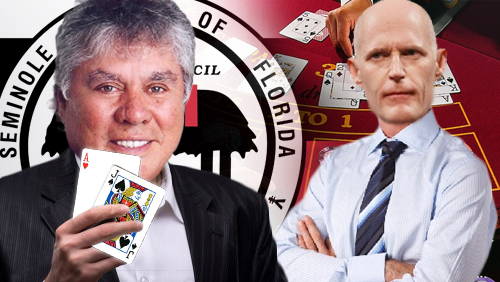 The Seminole tribe is playing hardball with Florida legislators over the gambling compact that gives the tribe exclusivity over certain gambling operations in the state.
The Seminole tribe is playing hardball with Florida legislators over the gambling compact that gives the tribe exclusivity over certain gambling operations in the state.
On Wednesday, Seminole Chairman James Billie informed Gov. Rick Scott in a letter titled “notice of commencement of compact dispute resolution procedures” that the tribe would keep on offering blackjack and other table games at its venues, despite the fact that its gambling compact with the state would expire on July 31.
The compact between the tribe and the state in 2010 gave the Seminole tribe exclusive rights to provide blackjack and other popular card games at its three casinos in Broward County and their other casinos in Tampa and Immokalee. In return, the tribe guaranteed $1 billion in revenue for the state over five years.
Without the renewed compact, the tribe will have to stop offering blackjack and other casino games within a grace period of three months, after which it becomes illegal.
However, tribal officials argued that they could keep offering the games to their visitors, as the state has supposedly violated the compact by allowing tracks across South Florida to feature electronic card games.
Billie’s letter gives the state 30 days to see if a mutual agreement can be reached, failing which a case will filed in federal court. The Seminoles have assured the state government that as a gesture of good faith, they will continue to keep their promise and make payments to the state for the card games it offers in their casinos.
Gov. Scott has not responded to the tribal request yet but according to State Sen. Rob Bradley, who heads the committee responsible for the regulation of gambling, legislators had not violated the agreement. He also called the letter a “predictable move” that aimed at renewing stalled negotiations between the involved parties. Sen. Bradley was among the lawmakers that tried to extend the agreement for another year.





